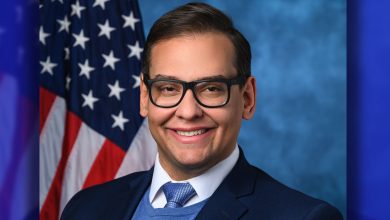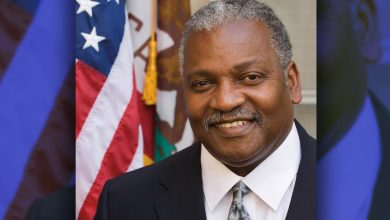After a Pandemic Pause, the State Will Restart Checking Medi-Cal Eligibility

By Ana B. Ibarra
CalMatters
California will soon restart its annual eligibility review for people enrolled in Medi-Cal, a process that has been suspended since the onset of the COVID-19 pandemic.
This means that starting in mid-April, residents enrolled in Medi-Cal, the state’s insurance program for low-income people, will start to receive renewal notices in the mail. The process will be spread over 14 months. Some people may be automatically re-enrolled, but most people will have to fill out a renewal packet with information about their income and household size. People who no longer qualify or who fail to fill out the paperwork will lose their free or low-cost coverage.
State officials estimate that between 2 million and 3 million people could lose their Medi-Cal coverage. Ideally, people who no longer qualify for Medi-Cal will transition to a plan in the state’s insurance marketplace, Covered California, or to a job-sponsored health plan. Still, health advocates worry that many people could fall through the cracks or get caught in administrative hurdles and become uninsured, leaving them more likely to delay or forgo care altogether.
Currently, 15.4 million people — more than a third of the state’s population — are enrolled in Medi-Cal, the most ever, according to the California Department of Health Care Services. That’s partly a result of the increased need during the pandemic: As people lost jobs and wages, many also lost their medical insurance. From March 2020 to February 2023, Medi-Cal enrollment increased 16%, according to the department.
And as thousands of people became newly eligible for Medi-Cal, far fewer were coming off. Federal rules prohibited states from dropping people from government-sponsored insurance during the pandemic as a way to protect access to care. Now those federal rules are lapsing.
California’s renewal process will restart on April 1 and should be completed around June 2024, meaning people can receive their renewal notices and paperwork anytime during this time period. Those who in the past have renewed in the month of June will get their paperwork first, said Yingjia Huang, assistant deputy director for health care benefits and eligibility at the Department of Health Care Services. This phased-in approach will help spread the caseload for county offices in charge of the review, Huang said, and also allow enrollees who have renewed in the past to keep a similar timeline.
To qualify for Medi-Cal, people can earn up to 138% of the federal poverty level — that’s $20,121 a year for an individual or $41,400 for a family of four. Some Californians, such as pregnant women and people with disabilities, may qualify with slightly higher incomes.
People who were eligible for Medi-Cal at some point during the pandemic, but who may no longer qualify because their income has increased, will be automatically transitioned into a similar plan through Covered California, Huang said.
“The system automatically will review their eligibility for Covered California and Covered California will send out the enrollment notice to the member, informing them of their options and to pay the plan premium. So there’s no administrative burden on a member,” Huang said. “We’re trying to make sure that process is seamless and streamlined.”
Whether people successfully make the switch will largely depend on their ability to pay their new monthly premium.
Most people who buy from the marketplace receive generous subsidies, and some people don’t have a premium cost at all. Nearly half of the people enrolled in coverage through Covered California pay less than $50 a month, according to the agency. Still, even a $5 premium, along with the accompanying deductibles and copays, can discourage people from buying a health plan, said John Baackes, CEO of L.A Care, which offers Medi-Cal and Covered California plans to Los Angeles residents.
This auto-transition into Covered California will be a new test for the state. In the past, when people disenrolled from Medi-Cal, they were likely to go without coverage at least temporarily. Between 2016 and 2019, roughly 65% of people who dropped off Medi-Cal (Medicaid in other states) had a period of uninsurance, according to national research from the Kaiser Family Foundation.
To help avoid unnecessary loss in coverage, state officials are asking enrollees to verify their contact information. The Department of Health Care Services estimates that about 12% of enrollees may have moved during the pandemic and are at risk of not receiving their renewal packets. People who have moved during the pandemic should update their address via the state’s KeepMediCalCoverage.org website or by contacting their local county office.
Health advocates are concerned that people won’t be able to access timely help, given the influx of calls and visits county offices may receive. The increased volumes compounded by workforce shortages can prove to be a barrier, said Tiffany Huyenh-Cho, a senior staff attorney with Justice in Aging, a legal aid organization that advocates on behalf of seniors.
“We need these county offices to be appropriately staffed because that is the first place people go with a question about eligibility,” Huyenh-Cho said. “We already hear reports of long wait times in general.”
Awareness that the renewal process is restarting is also key, advocates say. State and county officials have known that the Medi-Cal renewal process would restart at some point, even though the timeline was pushed back multiple times. The general public may be less aware. One national survey found that as of December, 64% of enrollees had not heard of the return to regular eligibility checks, though education efforts have been ramping up as the April 1 date gets closer.
“I wonder how many of these 15 million people even know they still have Medi-Cal coverage?” said Shannon McConville, a research fellow at the Public Policy Institute of California, noting that many people, especially if healthy, distanced themselves from routine care during the pandemic.
Baackes at L.A. Care said the onus of spreading the word about the renewal period also falls on the health insurance plans. L.A. Care, he said, has been beefing up its staff to prepare for the anticipated volume of calls and requests. It will also have 14 locations where people can go and get help filling out the hefty packet.
“The packet is 20 pages. It should be one page: ‘Where do you live? How much do you make? Thank you,’ but it’s 20 pages. So one of the things we’ll be doing is we’ll have these community resource centers spread across the county,” Baackes said.
Among his concerns is that the Medi-Cal renewal process will be taking place at a time when California is preparing for some key expansions and changes. Starting in 2024, more people will qualify for full-scope Medi-Cal benefits as the state opens enrollment to income-eligible undocumented people ages 26 to 49, the last remaining age group. About 700,000 people are expected to gain benefits through that expansion.
At the same time, the state will also commence new Medi-Cal contracts with insurers, which could result in health plan changes for some enrollees. That’s a separate process, Huang at the state department said, and will not require any action from enrollees.
But these different moving parts happening at the same time will create more traffic in county social services offices, Baackes said.
“It’s just unfathomable to me,” he said, “that the state thinks that this is all going to happen without huge confusion on the part of the people we’re trying to serve.”
Copyright © 2023 Bay City News, Inc. All rights reserved. Republication, rebroadcast or redistribution without the express written consent of Bay City News, Inc. is prohibited. Bay City News is a 24/7 news service covering the greater Bay Area.
###
AnaBIbarra/CalMatters2352p03/03/23
The post After a Pandemic Pause, the State Will Restart Checking Medi-Cal Eligibility first appeared on Post News Group.





